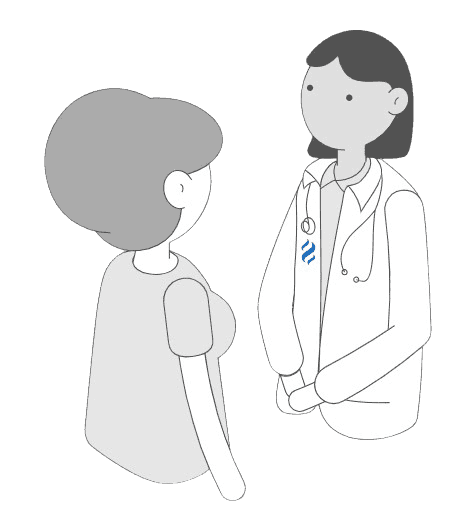Weight Loss Medications: Where to Begin
Blog

You've heard the buzz about weight loss medications like Ozempic, Wegovy, Mounjauro, and Zepbound, otherwise known as GLP-1 agonists. Figuring out where to start can be challenging. In this article, we will guide you through getting started with these weight loss medications.
Celebrities and influencers like Elon Musk, Chelsea Handler, and Jeremy Clarkson (to name just a few) have been featured in various news outlets talking about weight loss drugs. Weight loss medications have made significant advancements in recent years, and the topic of weight loss and obesity is everywhere.
Obesity is a “common, serious, and costly disease.” — CDC
“You can lose weight and still be unhealthy. We want to make sure that besides looking better, we help you achieve many of the benefits of safe and long-term weight loss." – Asher Arthur Kornbluth, MD
Why take weight loss medication?
Weight loss medication can help individuals who struggle to lose weight through diet and exercise alone. However, it's important to note that these medications are typically recommended as part of a comprehensive weight management program that includes dietary changes, physical activity, and behavioral modifications.
How do these GLP-1 drugs work?
GLP-1 agonists promote weight loss by supplementing the actions of the GLP-1 hormones our bodies naturally produce. They suppress hunger and stimulate satiety with smaller amounts of food. They also slow the emptying of the stomach, producing a sense of fullness with smaller amounts of food.
“The most common side effects are gastrointestinal in nature: nausea, vomiting, diarrhea, and constipation, which we can monitor and treat in various ways.”— Faith Aronowitz, MS, RD
How to get started with a weight loss medication?
The best way to not only access a weight loss medication but also use it safely is by working with medical professionals with specialty training in obesity medicine and weight management. They will select the appropriate medication, determine optimal dosing, develop an ancillary plan (diet and exercise), and provide ongoing health monitoring along the way. Choosing doctors who partner with nutritionists means getting the maximum benefit of the medications and minimizing the risk of negative side effects. We will work with you on sustainable eating patterns to ensure adequate nutritional status and manage GI distress.
“Adults on these medications are at risk of not meeting their nutritional needs and developing malnutrition. Working with a dietitian is important to prevent health complications that can arise from undereating." —Suzie Finkel, MS, RD
What happens when you stop taking weight loss medication?
Following cessation of weight loss drugs, weight gain is nearly inevitable unless sustainable changes in one’s diet and exercise were made. Also, individuals may encounter fluctuations in blood sugar levels and alterations in appetite. Therefore, partnering with a physician and dietitian is critical not just while taking the medication, but also while tapering and ultimately stopping the medication.
“We work from a weight-inclusive standpoint, which means that we're working on health-promoting behaviors with our patients, independent of their body size, whether they are on the medication or not on the medication.” —Faith Aronowitz, MS, RD.
Meet NYGA’s Medical Weight Loss Team
At New York Gastroenterology Associates, we offer medically-guided weight loss plans that are sustainable and address your overall metabolic health.
Obesity Medicine Physicians
Registered GI Dietitians
